On the front line of the conflict in eastern Ukraine, nearly half a million children are living childhoods defined by war.
“I see that war made people here negative, abusive, and violent,” says 12-year-old Veronika. “That used to be just an adult thing, but children are now like that too here.”
Veronika writes poems – not about war, but about love. “That’s the kind of world I would like to have around me,” she says.
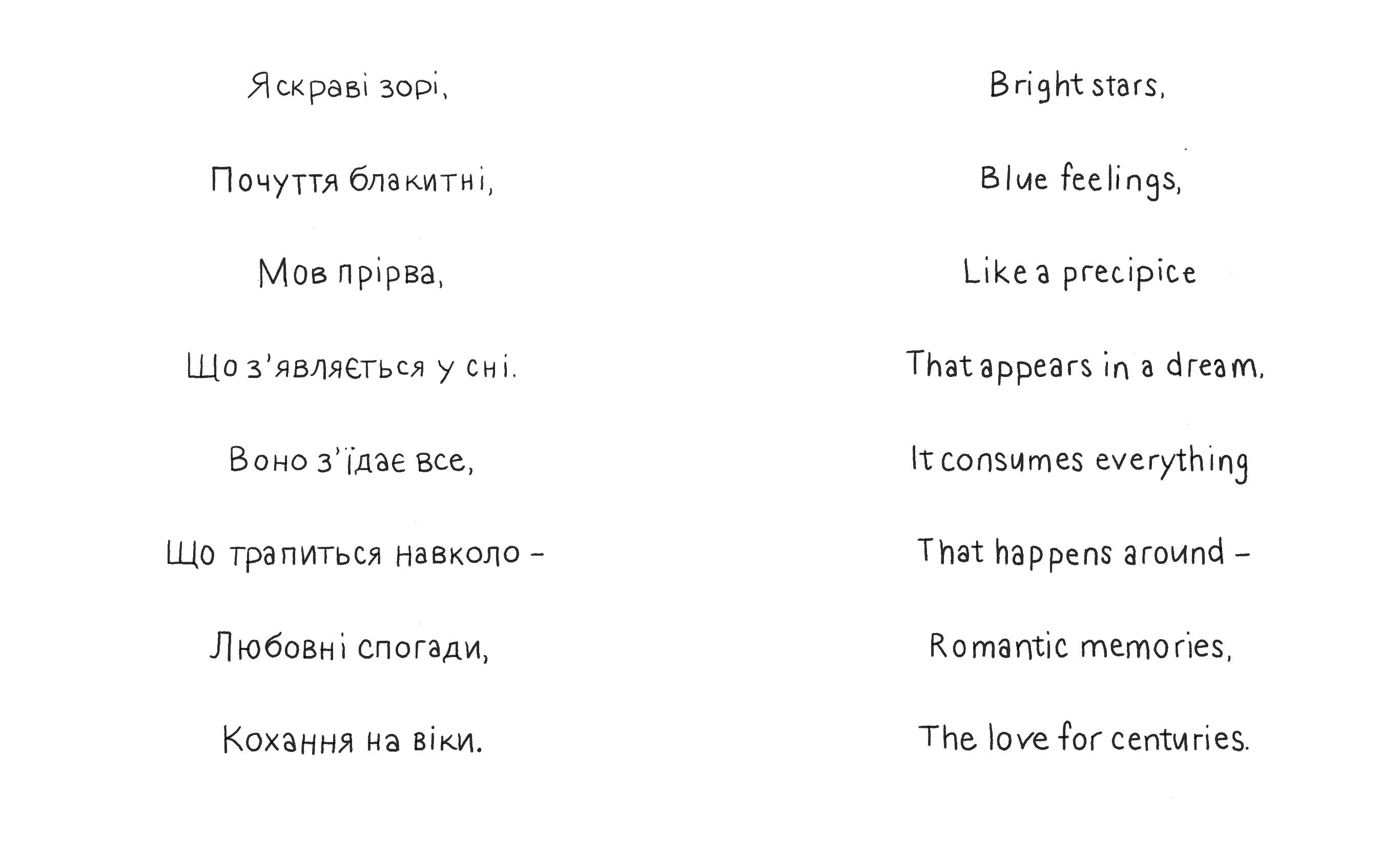
Earlier this year, Veronika and half a dozen other children spoke to photojournalist Jakub Laichter – along with their guardians, parents, and grandparents – from homes and military positions near the front line in and around Avdiivka, a government-controlled suburb of the rebel-occupied city of Donetsk.
They shared their memories of peace, and their hopes for a time after war – one that has continued for eight long years. This is more than half a lifetime for Veronika; and a full lifetime for others.
Some 430,000 children in Ukraine’s frontline regions “live with psychological wounds and need ongoing support to address the emotional trauma of growing up in a prolonged conflict”, according to UNICEF.
Despite the government’s increasing engagement in humanitarian response as the war has gone on – and the sustained efforts of a handful of NGOs in frontline regions – mental health support for children remains insufficient. And the pandemic and its economic fallout have weakened the healthcare system, decimating social services alongside vital infrastructure like water supplies and sanitation.
‘I wish to be washed clean of my life’
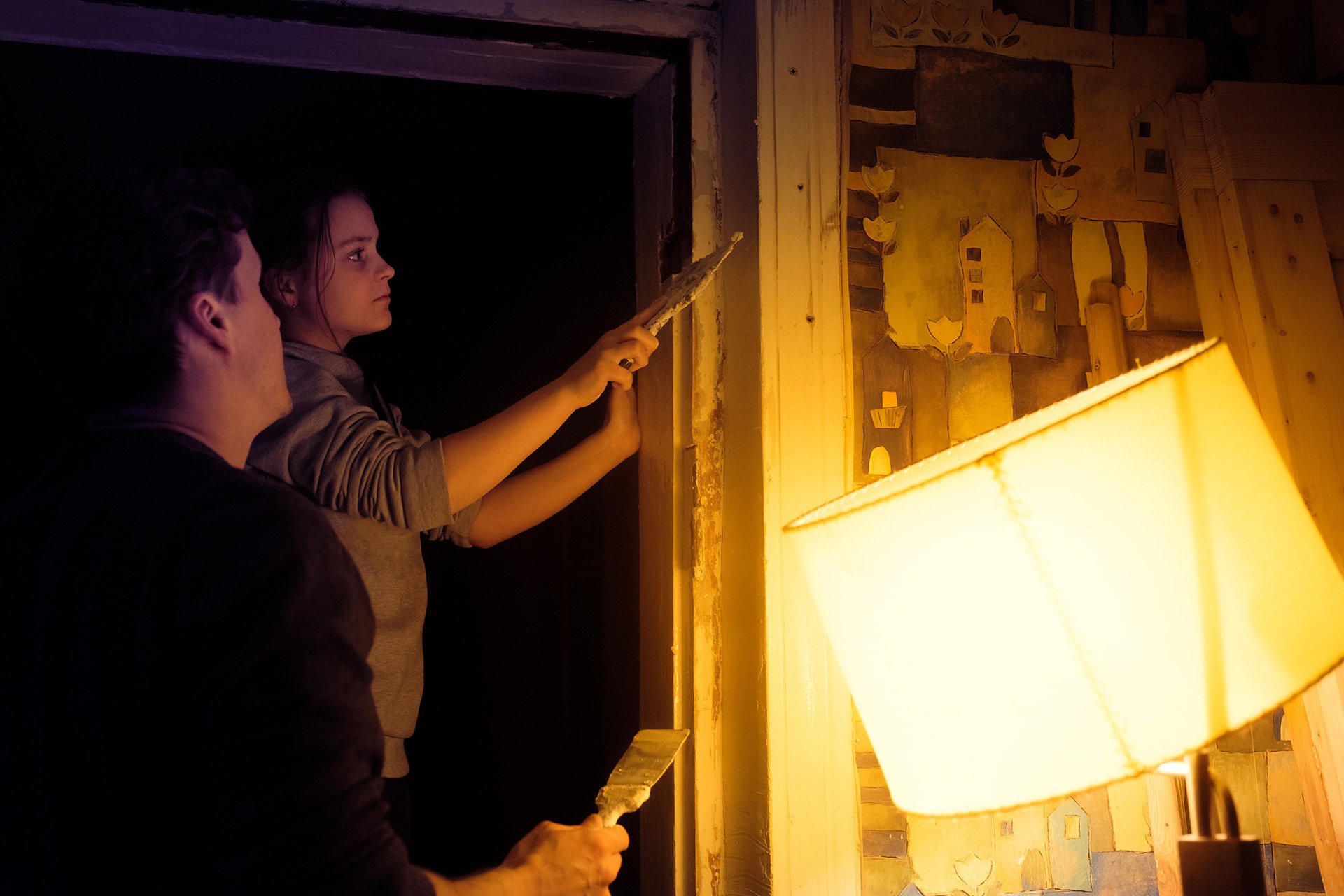
It’s 9 o'clock at night and Marika, 13, and her father Oleksiy are repairing a door in their kitchen. He is teaching her about different types of wood, why some furniture lasts longer than others, and what kind of paint is good for different surfaces.
Their home is an elegant wooden house, dating from before the times of Soviet concrete. Now that it has been devastated by the war, there’s a lot of work to be done. “We repair stuff all the time,” says Marika. “Dad told me that once we finish we can go on vacation, but I don’t think that's going to happen anytime soon.”
Marika’s family lives in the old part of Avdiivka. Once home to thousands of families, this place used to be a snug of suburban cottages. Today, it lies half empty and in ruins, with most residents having moved to the new part of town, an industrial Soviet-era project. This is a grimmer place, but it offers more safety from artillery fire thanks to concrete-block buildings that are several storeys high.
“I wish to be washed clean of my life here, to stop dreaming of what's going on,” Marika says, referring to the normal lives she imagines children living elsewhere.
‘Our cousin painted that explosion on the wall’
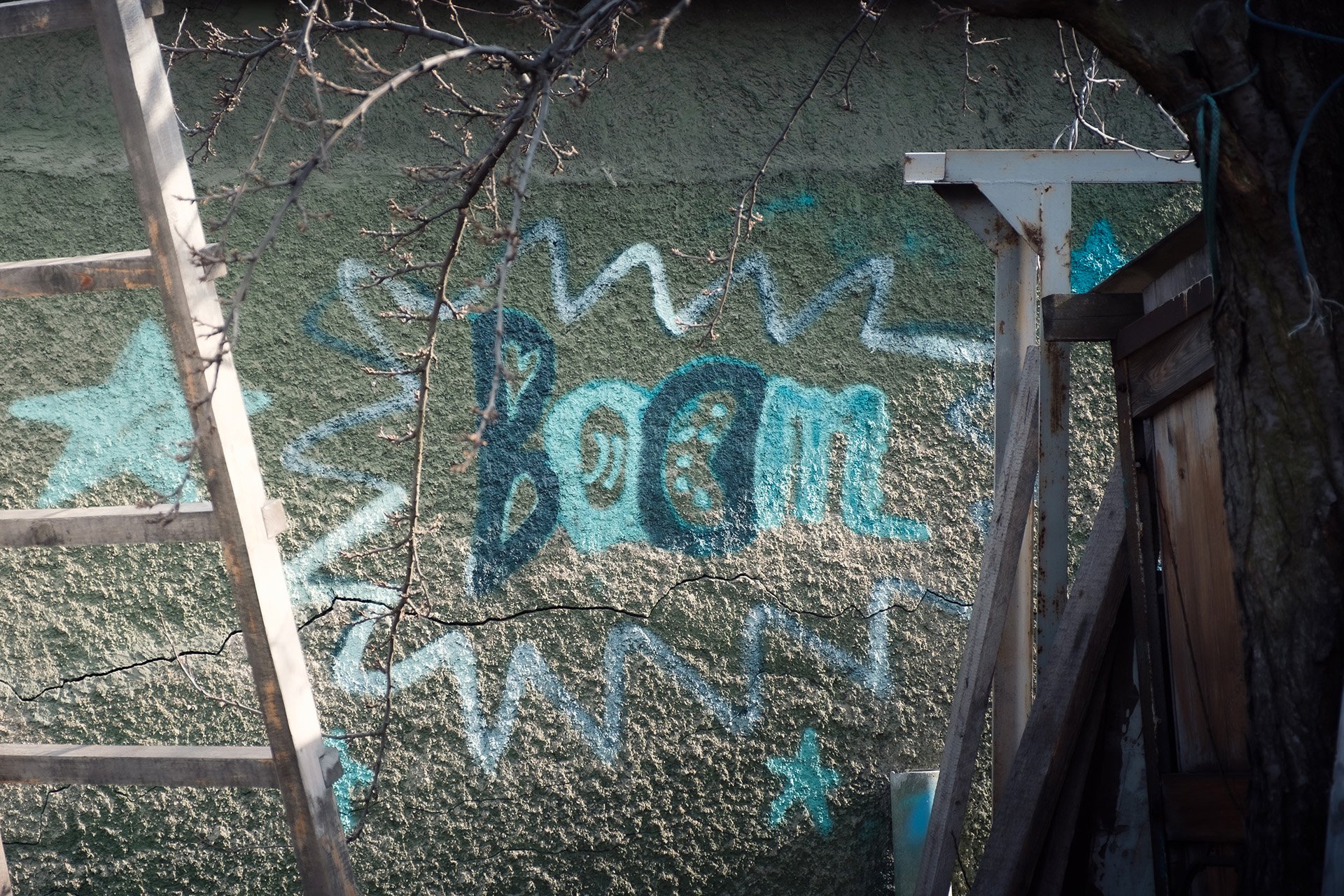
Some of the most intense fighting of the war has ripped through Avdiivka’s old town, which is only a few hundred metres from the front line.
"When the war began in 2014, we fled for two months,” Marika recalls. “That was the worst. We didn't get far, about 70 kilometres from here. There was some shooting there too, but less than here in Avdiivka. I did not like it over there, but we were lucky: A few days after we left, a mortar shell flew through our house.”
Even after years of living with the conflict, children here are often somewhat innocent about the reality of the war. Many witness explosions on a daily basis – some destroy the lives of people close to them, others affect them more directly.
For Marika, the fact their family home got hit is difficult to process.
“I remember when we came back. It was horrible to see our home like that. The explosion turned our home upside down. I think mum and dad cried, but they did not tell us,” she says, adding: “Our cousin painted that explosion on the wall.”
‘I don’t like my friends dying because of the war.’
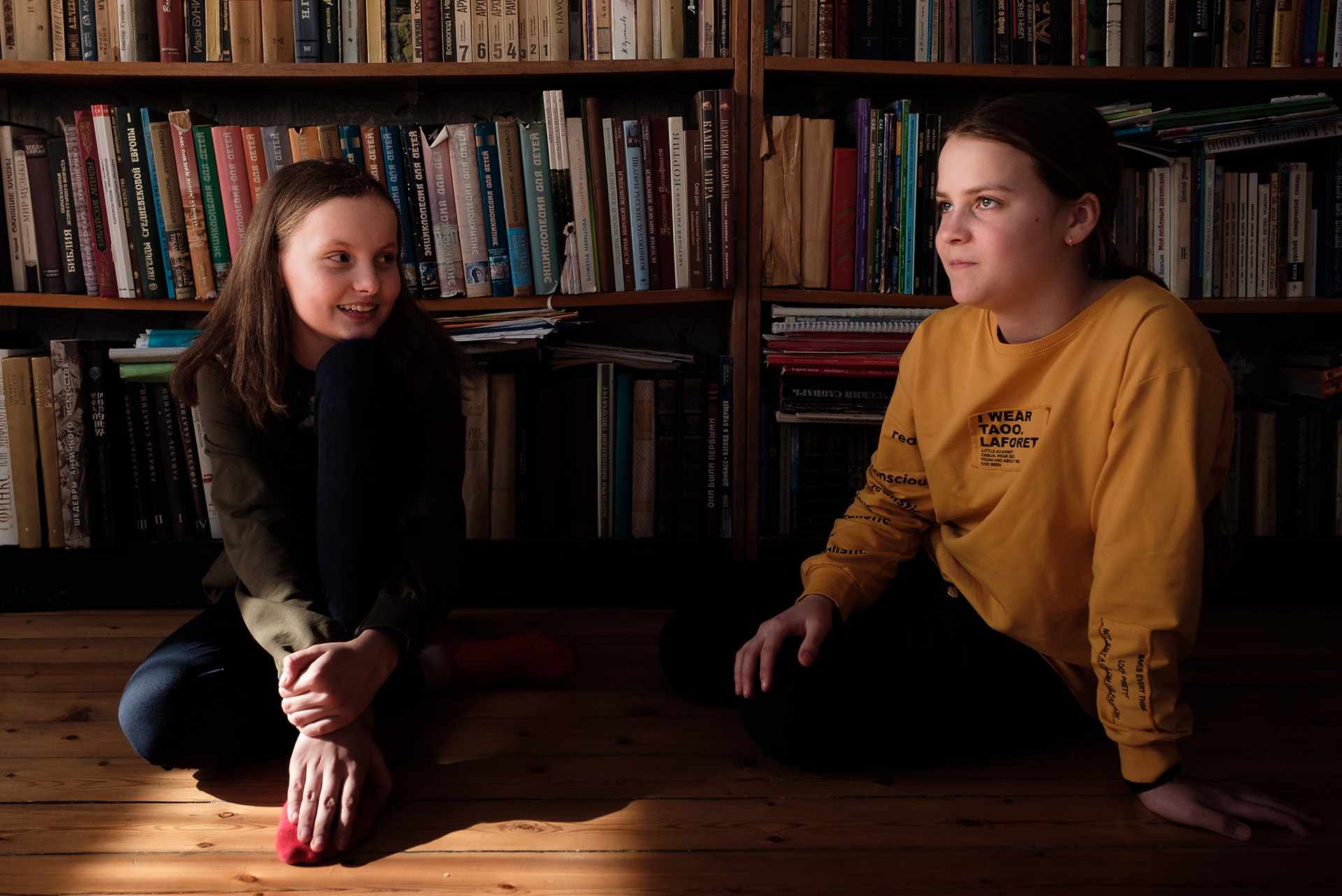
It’s a Sunday afternoon. The yard is filled with sun and a warm breeze. Marika’s family is enjoying the first barbeque of the year. Her mother, Svetlana, and Oleksiy are preparing vegetables and a few sausages for the grill. Marika is sitting with her cat high in the branches of a cherry tree. She is telling a story to Veronika, who is sitting in the grass below.
Veronika and Marika are best friends from school and spend most of their free time together. “You are quiet. Speak with me,” mutters Marika. “Shhh, writing a poem,” Veronika whispers back under her breath.
“I wrote my first poem on the second of October, but I am not sure what year it was – I forgot to write that down,” says Veronika. “At first, not everyone liked it, but that was fine. I was too small to care. I remember when I showed it to my mother – she did not believe me. ‘You just copied it somewhere,’ she laughed. But I did not! I don’t like when people ask me how I do it. Because I don’t know. I just write lines and there they are.
“Once, a boy from my class asked me to write a poem for him,” Veronika continues. “I think he was surprised it was not in Russian. I like Ukrainian more, and I think he liked it too. It makes my poems feel better in some way. He asked me to sign it. But I don’t have a signature [yet]. Maybe when I am older. I like to be 12. You are not too old yet and so you can still have a fun life. To be honest, I don't really want to grow up, and I think people can still enjoy my poems without the signature.
“I tried to write poems about the war and what I see around me, but those things just don’t come out of me. So I write poems about love… I don’t know why the war is going on. I only know that I want it to stop so we can all live peacefully together. I had a friend. He was an old guy. I would go to him and we would speak; about poetry and everything… I remember my mother receiving this call. Her face did not look alright and I knew what happened. I think I did not smile after that for a long time. I don’t like my friends dying because of the war. Lots of them did.”
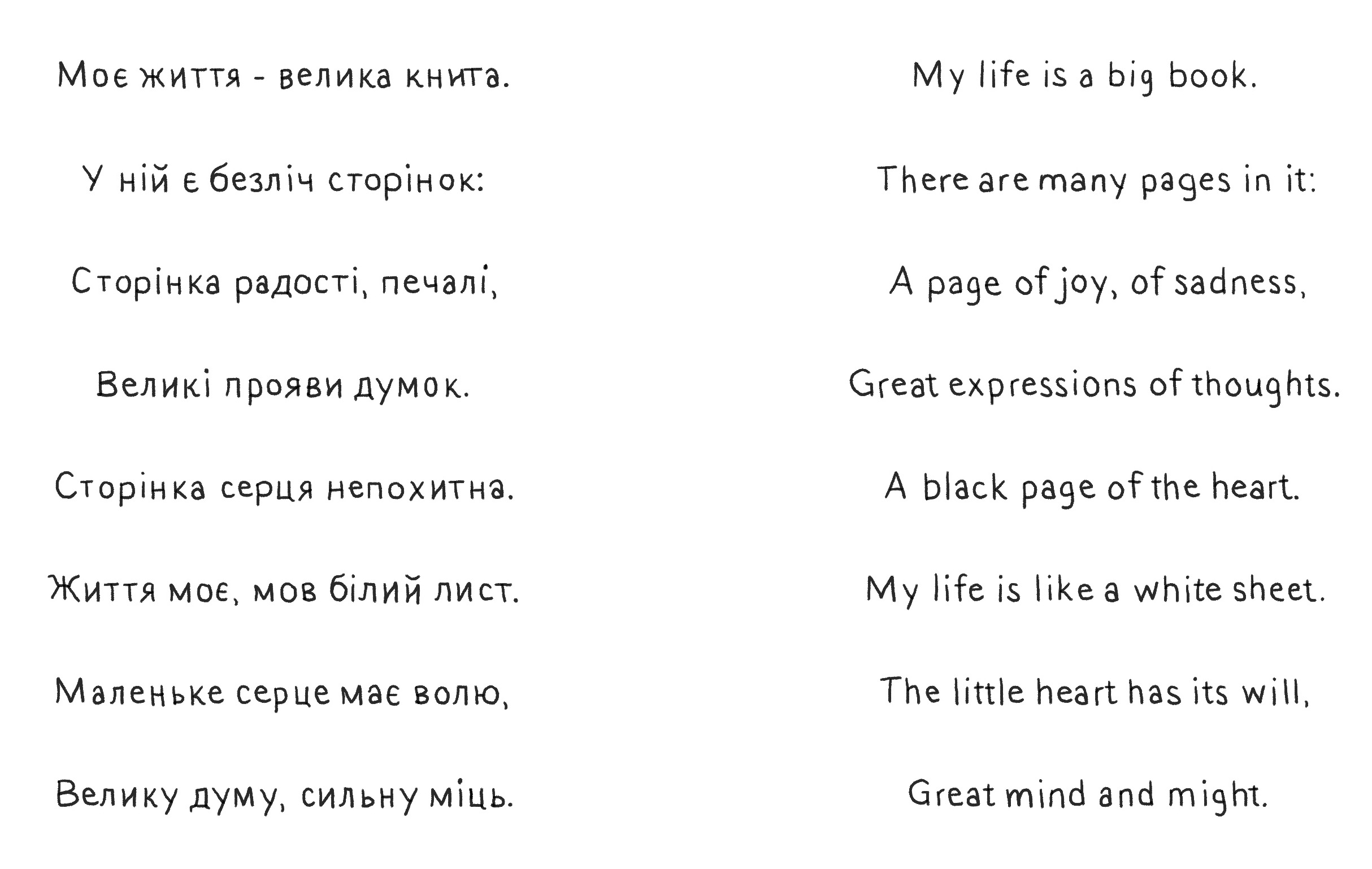
Veronika is suddenly reminded by a distant explosion of the approaching dusk and stops her monologue. She knows she should go home, but she doesn't really want to. Veronika's parents don’t let her come here as often as she would like. Marika’s house is just a couple of hundred metres from Veronika’s, but here that can often be the difference between relative safety and danger. Svetlana encourages her to leave. “I will take you home,” she says. “Don’t make your parents angry.”
They walk together through the dark street. The air smells of gunpowder, but it is quiet. Veronika is finishing her last thought: “I don’t remember much of life before the war. I was just five. I remember being able to visit my friends and family in Donetsk. I think it never rained and it was always sunny. Our town was just full of positive energy; but now it is destroyed. I guess it is like black and white, before and after. It is like my poems. For white, there always needs to be some black, and one needs to come after each other.” Then, they disappear into the night.
‘I don’t want the kids to cry anymore’
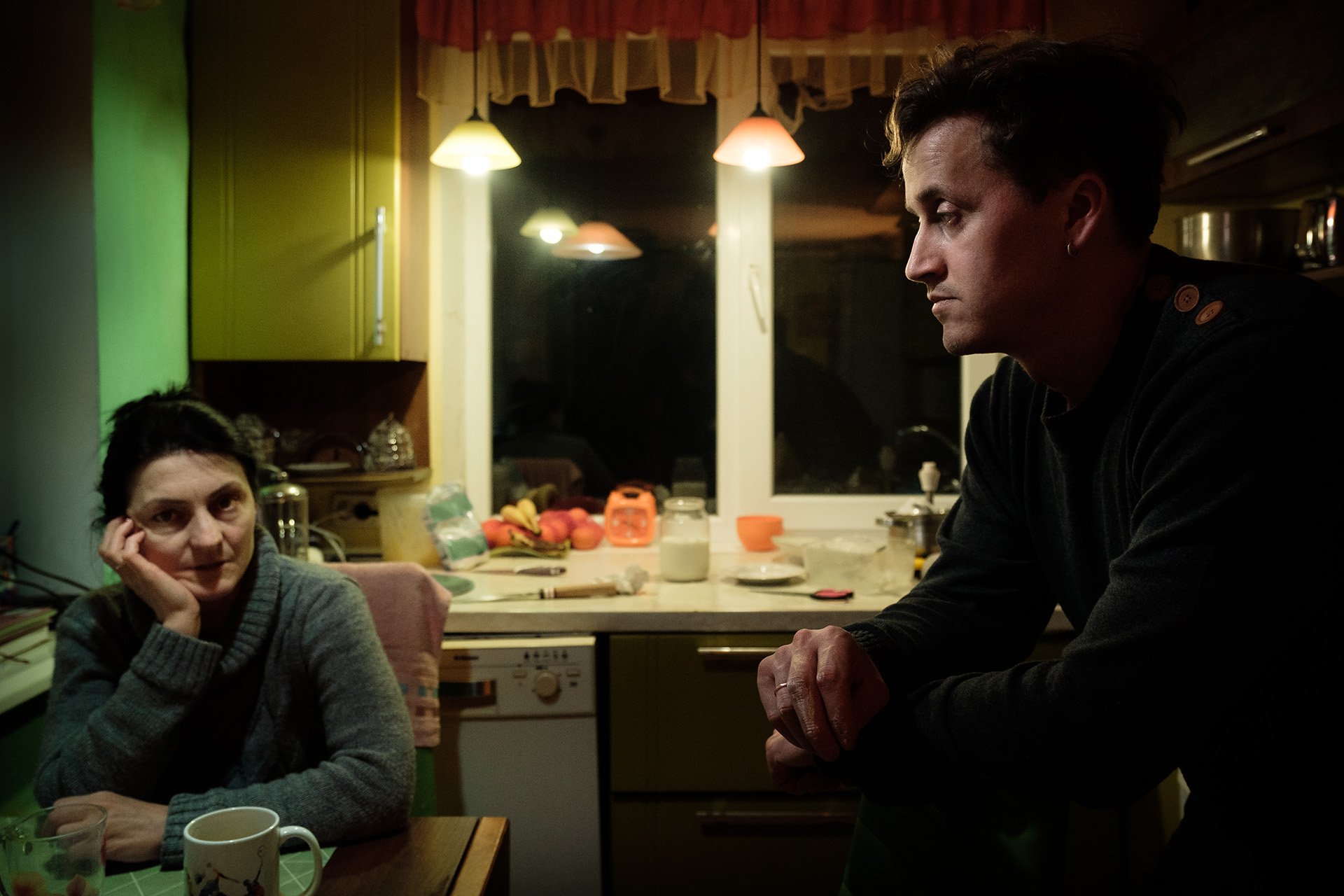
It is after midnight. Marika’s parents are sitting in the kitchen. They don't know what awaits them. Everything seems uncertain. The possibility of another full-blown separatist invasion seems inescapable, and with it also the fear they might need to flee their home once again.
Svetlana works at a local school, and Oleksiy is involved with a variety of local projects aimed at improving conditions for civilians near the front line, among other things helping a psychologist twice a week to travel to other villages and towns where such help is scarce. The couple could have fled already, but instead they have both devoted their lives to trying to build a better future for what’s left of their community. But living with such unpredictable tomorrows is testing their resolve.
"Last weekend, we visited Sviatohirsk to see a place we could possibly go to for a little bit. Perhaps we could flee there? It's nice over there: We call it Sviatohirsk, Switzerland of Donbas," confides Oleksiy. "What are we going to solve then?” responds Svetlana. “We cannot keep running from place to place. We are going to be without home, work, friends.” But then she adds: “I don’t want the kids to cry anymore."
‘Nothing changes here’
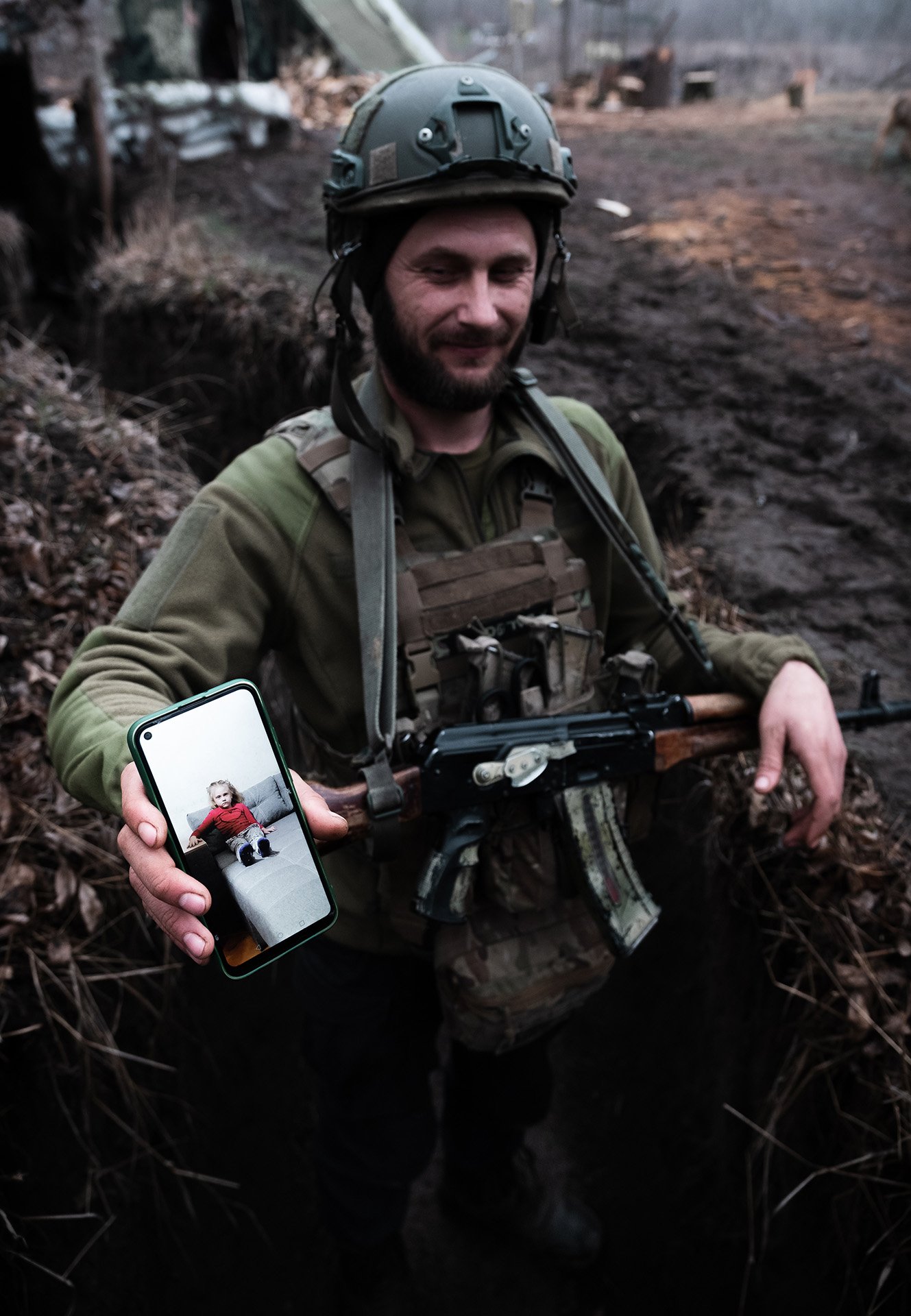
Cold March rains drench the trenches in the forest where Vitaly is stationed outside Avdiivka, lending everything the gloomy air so typical of the Donbas steppe. Cut power lines hang from the lonely poles.
Vitaly shivers in the chill of the wind. He is sitting with other soldiers, drinking instant coffee from disposable plastic cups that have been used time and time again. The whistle of an incoming mortar shell fills the air. Vitaly mutters as he spills the coffee. Instincts kick in. The soldiers get low to the ground. Everyone slides to the safety of a muddy trench. The shell whips through the air a few dozen metres above the soldiers’ heads and slams into the field behind them.
“Nothing changes here, no? Bullets fizz above your head. Shells are falling. You can’t even have your goddamn cup of coffee,” Vitaly says, slightly panting.
‘Daddy, when will you come home?’
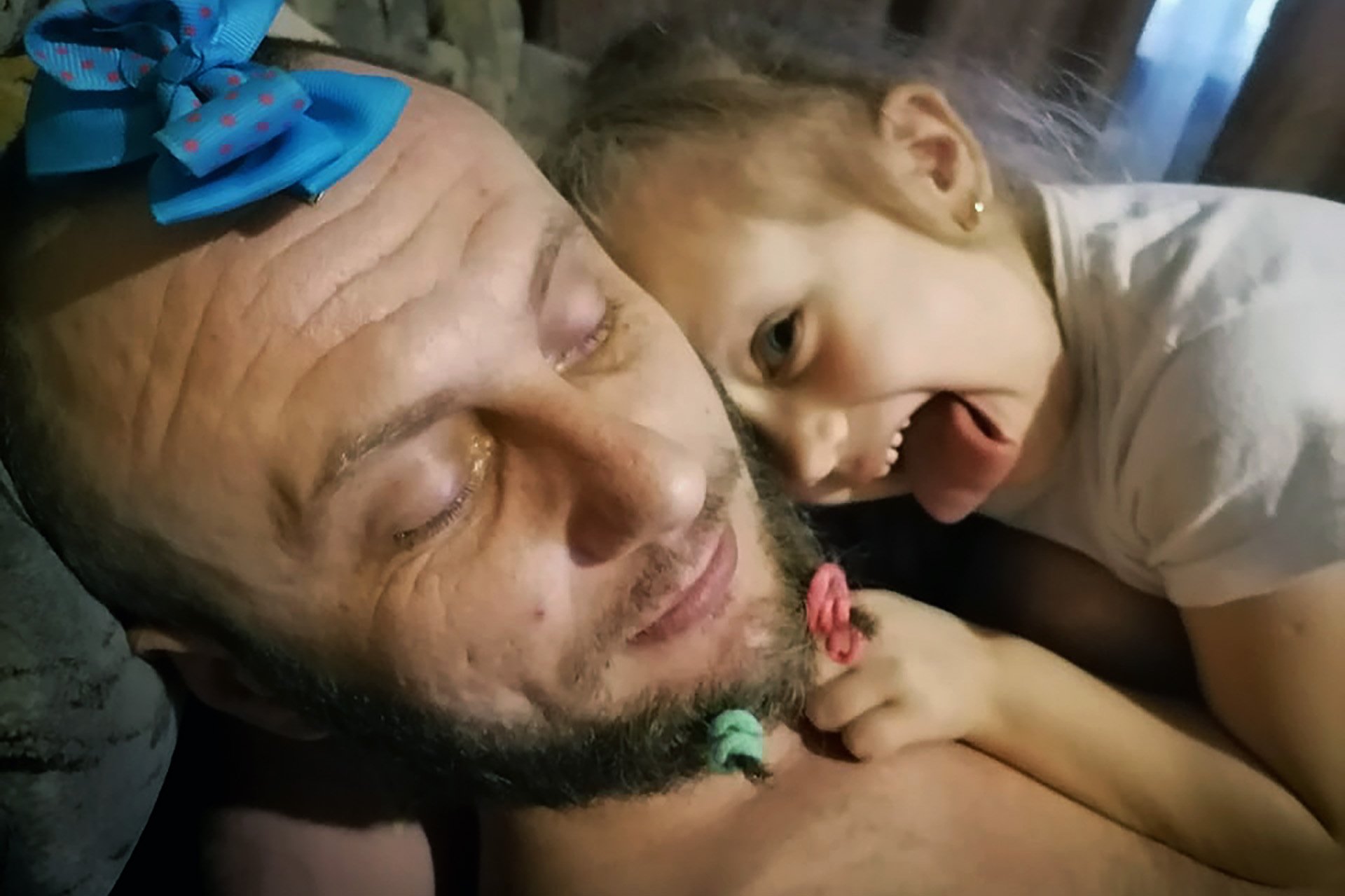
In the early days of the conflict, feelings of nationalism and a fear of invasion spurred thousands of Ukrainians to volunteer to head east to fight for their nation. Vitaly was one of them. He joined a volunteer battalion, “Azov”. Later, he became part of the official Ukrainian army. “It has been seven long years. By some measures, a lot has happened; by others, not so much. You see, I am still standing in this God-forsaken trench.”
Vitaly recounts a happier time, when his five-year-old daughter Arina* was on the way.
“In summer 2015, I called my wife, on 20 July, and told her that my phone was out of battery and gave her the number of my officer so she could call me on his phone. She was already in the hospital. I wish I could have had my phone, but we did not have electricity on the front line at that time.”
“Then, the next day, I see my officer, he is running to me through the trench and shouting: ‘Vitaly! Phone! Your wife is calling!’ I take the phone, put it to my ear and I hear: ‘Vitaly, you have a daughter.’ I jump up, throw my gun to the air and shout over the minefields, ‘I have a daughter! I have a daughter!’ again and again, so everyone can hear, even people in Donetsk; and I cry and I run to my friends and I tell them, and I am so happy.”
“But sometimes now it is not that ‘happy’. In three months, she is going to be six years old. Six years, and I am still sitting in the trench, seeing my daughter at best just a couple of times a year. Now when I call, she asks me: ‘Daddy, when will you come home?’ I tell her: ‘Soon, but I am busy now.’ She is like: ‘Dad when are you going to be free?’ I must tell her that she needs to understand. Then she says: ‘I love you,’ but often she just cries.”
‘We saw tanks burning’
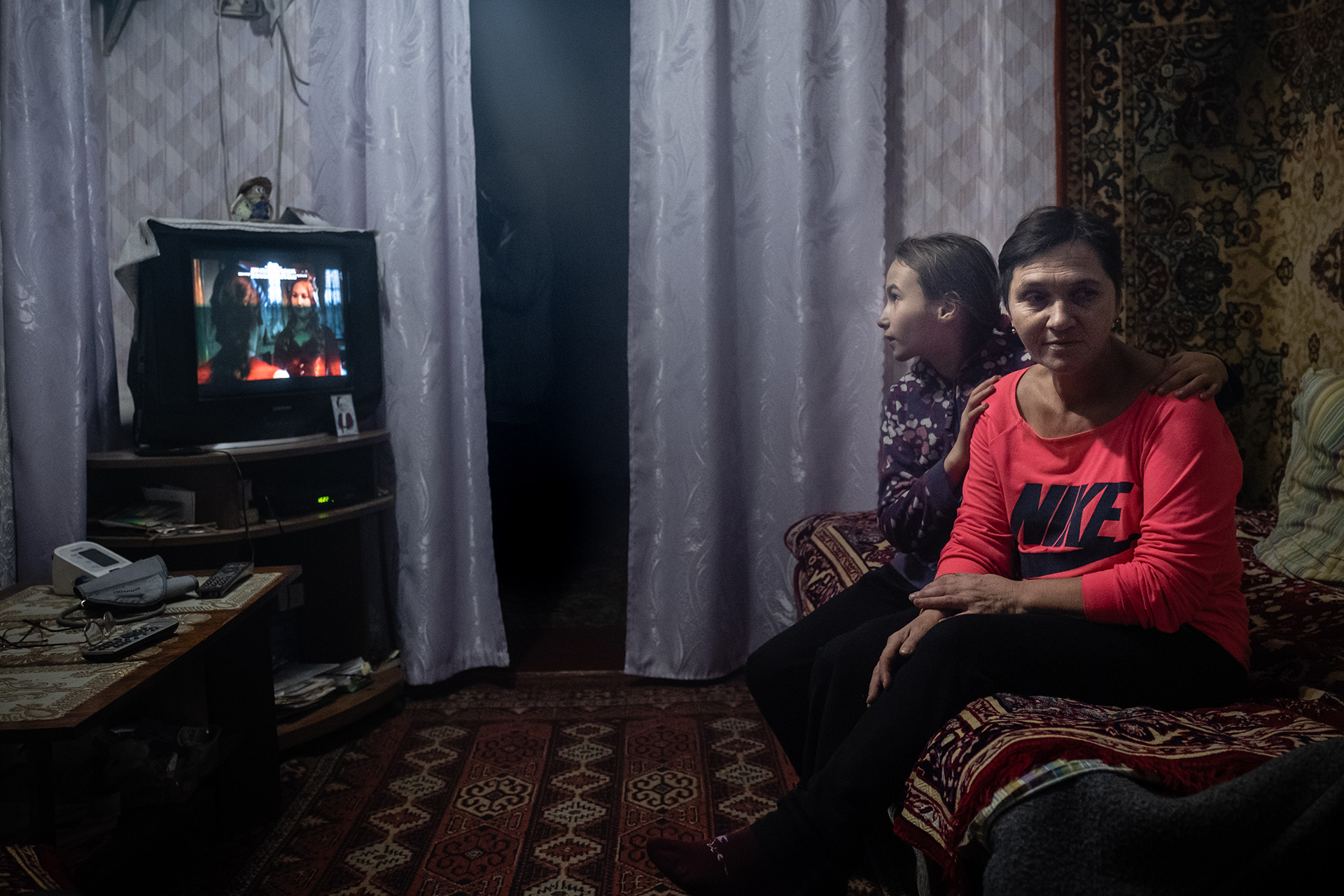
Anja, 12, and her younger sister grew up with their grandmother, Sveta, on the outskirts of Avdiivka. Sveta wishes they could live far from the war. “No child should have ever seen what they have seen,” she says, recalling the early days of the conflict. “Every day, they would bring dead bodies of soldiers from the forest... They would come to us and cry.
“We saw tanks burning,” she continues. “Anja was crying when the soldiers were jumping out, burning alive. There on the road (she points out of the window), they drove into the minefield.”
“Do you remember something from the time before the war?” Sveta asks Anja. “I don’t even remember when the war started, it just always has been here,” Anja replies.
“We cannot bring up our children in a normal way. Everything is destroyed,” says Sveta. “War destroyed our plans, our future. I just wanted to live quietly with my pension, but now even that seems pointless. [Anja] was born just before the war started. She will remember only war, that's all.”
‘When you hear ‘fiiiii’, we run and hide.’
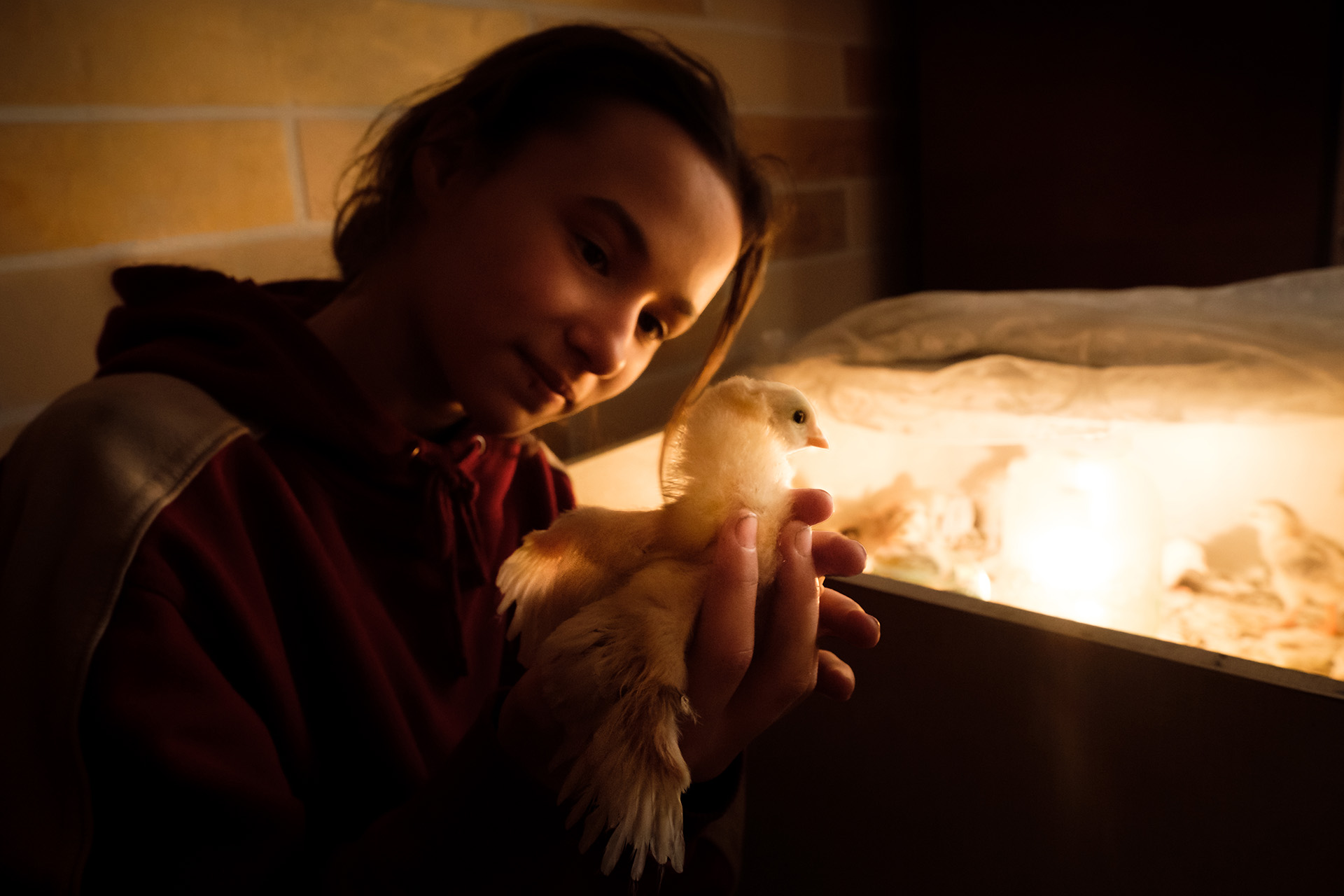
Time passes slowly. Nobody says a word. Kids lie on the ground, drawing. Baba Sveta sits by the stove, silently, not moving, seemingly absorbed by the crackling of the fire.
As the evening comes, the shelling starts. But no one seems bothered by the sound of explosions. Sveta calmly pours another cup of tea for Anja and moves closer to the fire.
Anja is drawing one of her favourite chicks. They live inside, in the bedroom. When she is done, she lifts one of the chicks from the box next to her bed. She calls him Zhora. She sits with him by the fire. “Pipi pi pi pip – that’s you, a little chick”, she imitates the sound and then continues: “Ta ta ta ta, machine gun, and fiiiiii BUFFFF – that's a mortar shell. When you hear ‘fiiiii’, we run and hide.” Her smile disappears and she stares through the window.
*Name changed at the request of a guardian. The other families, interviewed in April and May 2021, preferred to be identified only by their first names. Ages are correct as of the date of interview.
Edited by Andrew Gully.





